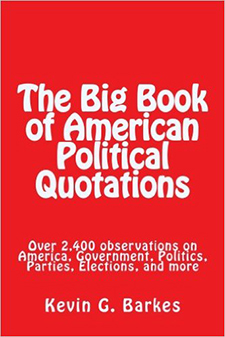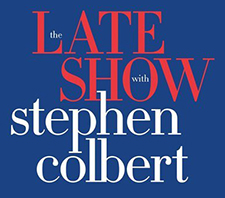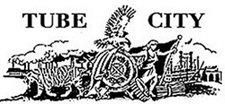
Oliver Wendell Holmes, Jr. (March 8, 1841 - March 6, 1935) was an American jurist who served as an Associate Justice of the Supreme Court of the United States from 1902 to 1932, and as Acting Chief Justice of the United States January–February 1930. Noted for his long service, his concise and pithy opinions and his deference to the decisions of elected legislatures, he is one of the most widely cited United States Supreme Court justices in history, particularly for his "clear and present danger" opinion for a unanimous Court in the 1919 case of Schenck v. United States, and is one of the most influential American common law judges, honored during his lifetime in Great Britain as well as the United States. Holmes retired from the Court at the age of 90 years, 309 days, making him the oldest Justice in the Supreme Court's history. He also served as an Associate Justice and as Chief Justice on the Massachusetts Supreme Judicial Court, and was Weld Professor of Law at the Harvard Law School, of which he was an alumnus. (Click here for full Wikipedia article)
-----
A page of history is worth a volume of logic.
A word is not a crystal, transparent and unchanged, it is the skin of a living thought and may vary greatly in color and content according to the circumstances and the time in which it is used.
But as precedents survive like the clavicle in the cat, long after the use they once served is at an end, and the reason for them has been forgotten, the result of following them must often be failure and confusion from the merely logical point of view.
Certainty generally is illusion, and repose is not the destiny of man.
Certitude is not the test of certainty. We have been cocksure of many things that were not so.
Constitutions are intended to preserve practical and substantial rights, not to maintain theories.
Courts are apt to err by sticking too closely to the words of a law where those words import a policy that goes beyond them.
Deep-seated preferences cannot be argued about- you cannot argue a man into liking a glass of beer- and therefore, when differences are sufficiently far reaching, we try to kill the other man rather than let him have his way. But that is perfectly consistent with admitting that, so far as appears, his grounds are just as good as ours.
Detached reflection cannot be demanded in the presence of an uplifted knife.
Eloquence may set fire to reason.
Even a dog distinguishes between being stumbled over and being kicked.
Every opinion tends to become a law.
For the rational study of the law the blackletter man may be the man of the present, but the man of the future is the man of statistics and the master of economics.
Free competition is worth more to society than it costs.
General propositions do not decide concrete cases.
Great cases like hard cases make bad law. For great cases are called great, not by reason of their importance in shaping the law of the future, but because of some accident of immediate overwhelming interest which appeals to the feelings and distorts the judgement.
I can't help preferring champagne to ditch water- I doubt if the universe does.
I confess that I do not understand the principle on which the power to fix a minimum for the wages of women can be denied by those who admit the power to fix a maximum for their hours of work.
I despise making the most of one's time: half the pleasures of life consist of the opportunities one has neglected.
I have no respect for the passion of equality, which seems to me merely idealizing envy- I don't disparage envy but I don't accept it as legitimately my master.
I think that we should be eternally vigilant against attempts to check the expression of opinions that we loathe and believe to be fraught with death, unless they so imminently threaten immediate interference with the lawful and pressing purposes of the law that an immediate check is required to save the country.
If I were dying, my last words would be, Have faith and pursue the unknown end.
If you want to know the law and nothing else, you must look at it as a bad man, who cares only for the material consequences which such knowledge enables him to predict, not as a good one, who finds his reasons for conduct, whether inside the law or outside of it, in the vaguer sanctions of conscience.
It is only the present danger of immediate evil or an intent to bring it about that warrants Congress in setting a limit to the expression of opinion where private rights are not concerned.
Life is an end in itself, and the only question as to whether it is worth living is whether you have had enough of it.
Life is painting a picture, not doing a sum.
Men must turn square corners when they deal with the Government.
Most of the things we do, we do for no better reason than that our fathers have done them or our neighbors do them, and the same is true of a larger part than what we suspect of what we think.
Nature has but one judgment on wrong conduct- if you can call that a judgment which seemingly has no reference to conduct as such- the judgment of death.
Now and then, an extraordinary case may turn up, but constitutional law, like other mortal contrivances, has to take some chances, and in the great majority of instances, no doubt, justice will be done.
One has to try to strike the jugular and let the rest go.
One of the eternal conflicts out of which life is made up is that between the effort of every man to get the most he can for his services, and that of society, disguised under the name of capital, to get his services for the least possible return.
Only the emergency that makes it immediately dangerous to leave the correction of evil counsels to time warrants making any exception to the sweeping command, 'Congress shall make no law...abridging the freedom of speech.'
Our test of truth is a reference to either a present or an imagined future majority in favor of our view.
Some of her answers might excite popular prejudice, but if there is any principle of the Constitution that more imperatively calls for attachment than any other it is the principle of free thought- not free thought for those who agree with us but freedom for the thought that we hate.
State interference is an evil, where it cannot be shown to be a good.
Taxes are what we pay for civilized society.
That, at any rate, is the theory of our Constitution. It is an experiment, as all life is an experiment.
The advice of the elders to young men is very apt to be as unreal as a list of the hundred best books.
The aim of the law is not to punish sins, but is to prevent certain external results.
The character of every act depends upon the circumstances in which it is done.
The chief end of a man is to frame general ideas- and... no general idea is worth a damn.
The common law is not a brooding omnipresence in the sky, but the articulate voice of some sovereign or quasi sovereign that can be identified; although some decisions with which I have disagreed seem to me to have forgotten the fact.
The degree of civilization which a people has reached, no doubt, is marked by their anxiety to do as they would be done by.
The elaborate argument against the constitutionality of the Act if interpreted as we read it, in accordance with its obvious meaning does not need an elaborate answer.
The interpretation of constitutional principles must not be too literal. We must remember that the machinery of government would not work if it were not allowed a little play in its joints.
The law, so far as it depends on learning, is indeed, as it has been called, the government of the living by the dead. To a very considerable extent no doubt it is inevitable that the living should be so governed. The past gives us our vocabulary and fixes the limits of our imagination; we cannot get away from it. There is, too, a peculiar logical pleasure in making manifest the continuity between what we are doing and what has been done before. But the present has a right to govern itself so far as it can; and it ought always to be remembered that historic continuity with the past is not a duty, it is only a necessity.
The liberty of the citizen to do as he likes so long as he does not interfere with the liberty of others to do the same, which has been a shibboleth for some well known writers, is interfered with by school laws, by the Post Office, by every state or municipal institution which takes his money for purposes thought desirable, whether he likes it or not.
The life of the law has not been logic; it has been experience... The law embodies the story of a nation's development through many centuries, and it cannot be dealt with as if it contained only the axioms and corollaries of a book of mathematics.
The most stringent protection of free speech would not protect a man in falsely shouting 'fire' in a theater and causing a panic.
The power to tax is not the power to destroy while this Court sits.
The question in every case is whether the words used are used in such circumstances and are of such a nature as to create a clear and present danger that they will bring about the substantive evils that Congress has a right to prevent. It is a question of proximity and degree. When a nation is at war many things that might be said in time of peace are such a hindrance to its effort that their utterance will not be endured so long as men fight and that no Court could regard them as protected by any constitutional right.
There is in all men a demand for the superlative, so much so that the poor devil who has no other way of reaching it attains it by getting drunk.
There's a great deal of difference between a little bit and a lot.
To have doubted one's own first principles is the mark of a civilized man.
Vanity is the most philosophical of those feelings that we are taught to despise. For vanity recognizes that if a man is in a minority of one we lock him up, and therefore longs for an assurance from others that one's work has not been in vain.
Whatever disagreement there may be as to the scope of the phrase 'due process of law' there can be no doubt that it embraces the fundamental conception of a fair trial, with opportunity to be heard.
-----
(Click here for quotes from Holmes' father, Oliver Wendell Holmes, Sr.)
(March 8 is also the birthday of Gene Fowler.)
Categories: Oliver Wendell Holmes, Jr., Quotes of the day
KGB Stuff Commentwear E-Mail KGB
Donate via PayPal

















